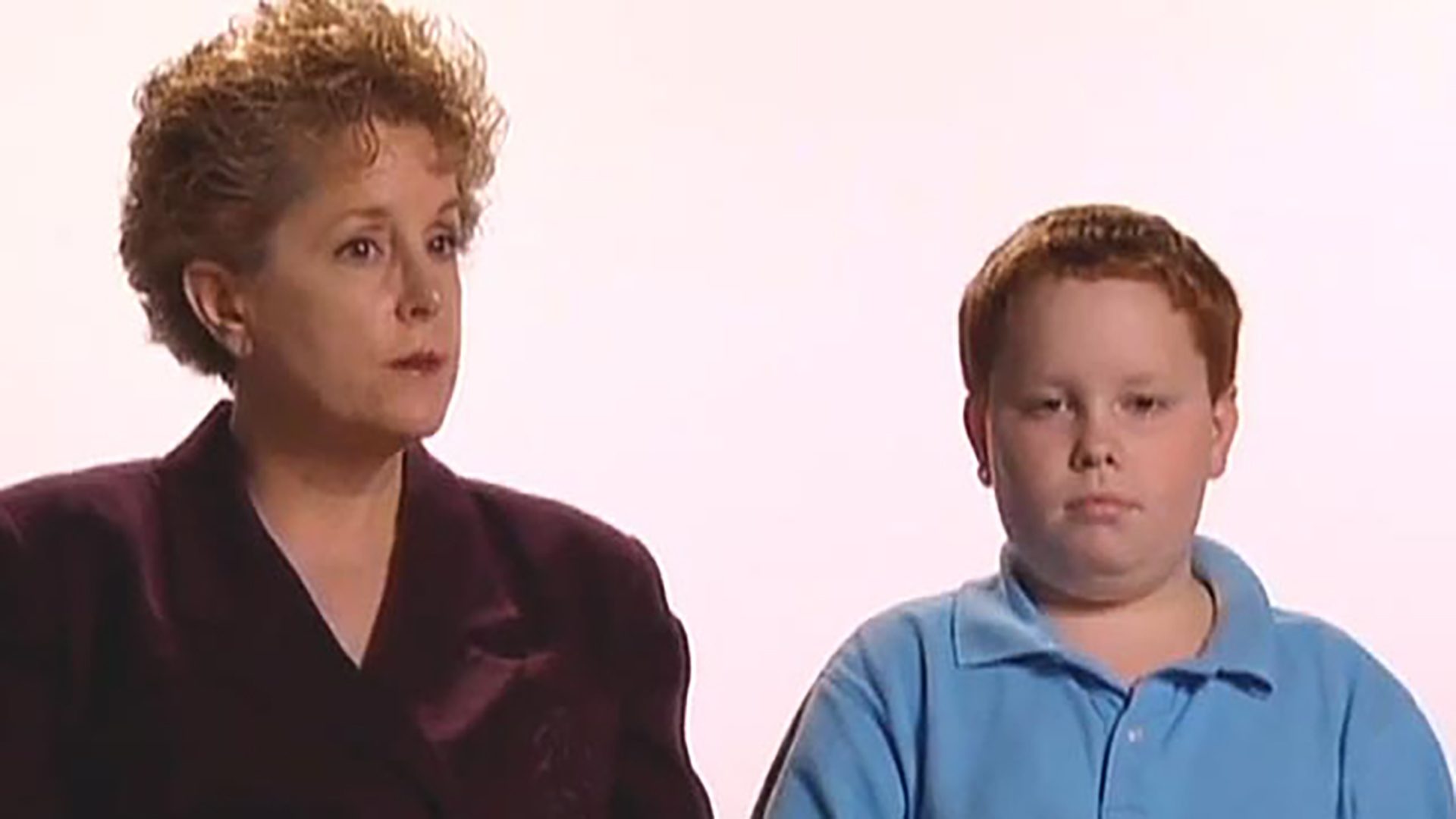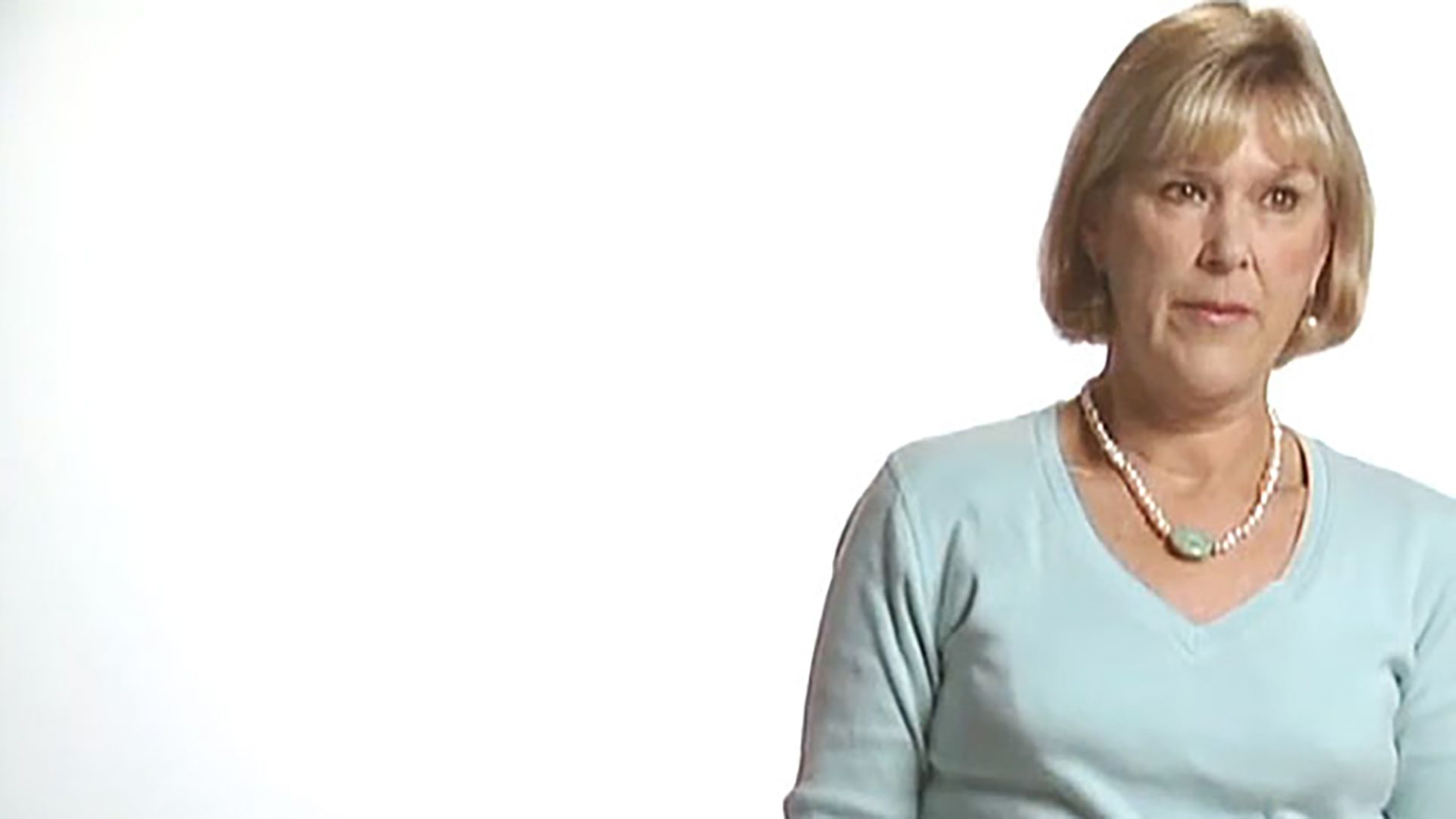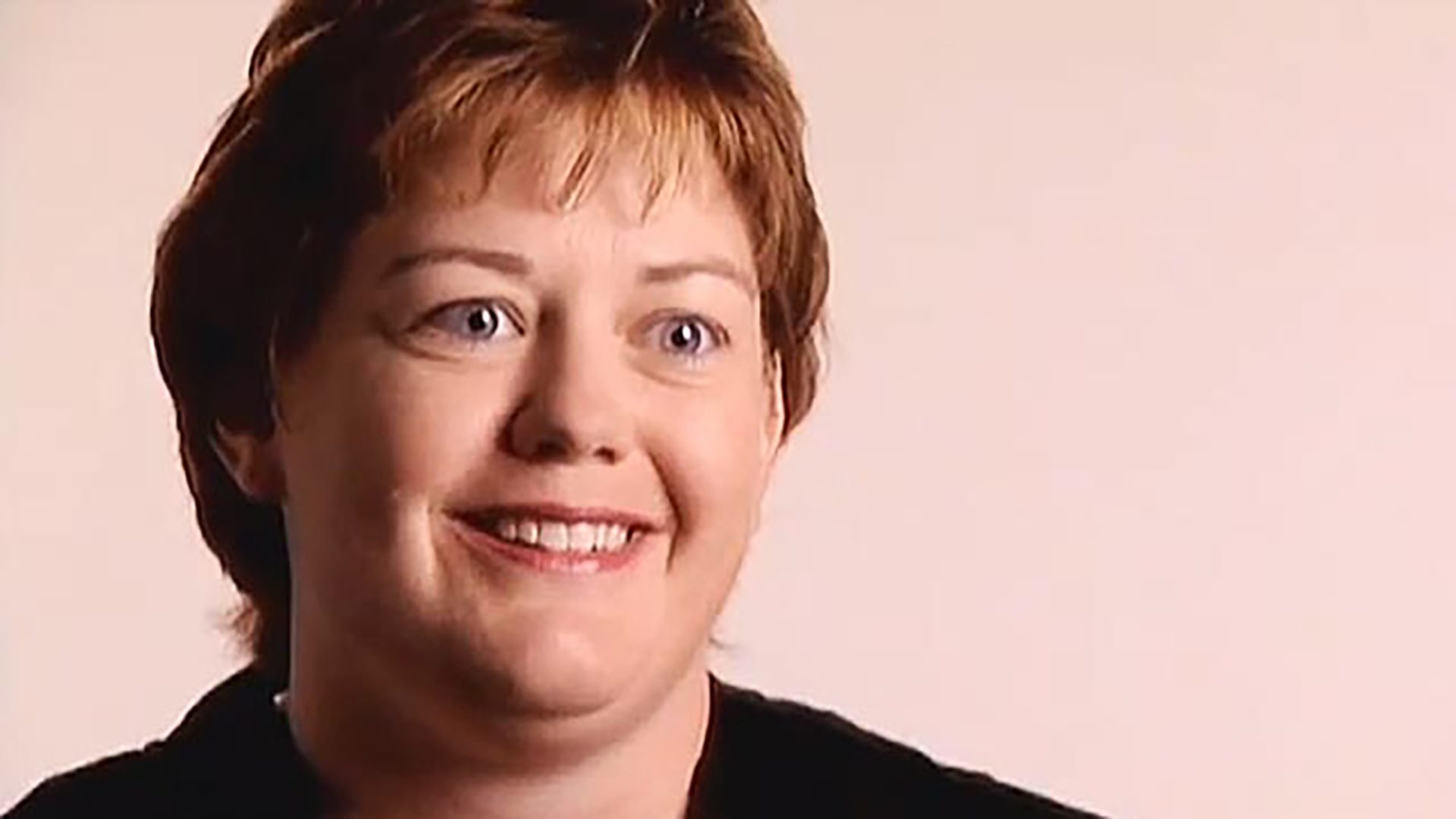Survivor Interview – Robin and Cheryl S.
Lymphoma survivor Robin and his mom talk about going back to school after treatment, meeting other young cancer survivors, and what survivorship means to him.

Robin: When I was diagnosed with cancer, I was four years old.
Cheryl (Robin’s mother): He was diagnosed on March 17, 1996 with T-Cell Lymphoma.
Robin: I didn’t really recognize what cancer was until I was sort of off treatment. I’d say not really until I was eight until I really recognized what cancer is and how bad it can be. It scared me that I went through something as bad.
Cheryl: Robin was treated primarily through chemotherapy. He had some infections that they had to perform surgery on to help clear those up. For two-and-a-half years, he had a spinal tap every nine weeks. And bone marrow extractions every nine weeks for a while. For a child so small, I think sometimes the emotional stress was as bad as the pain. I remember thinking how strong and how courageous a little child has to be to just do those things.
We continue going back for long-term survivor clinic. We’re down to once a year. Part of what we do in long-term survivor clinic is thorough testing. They test his heart. Some of the chemotherapy he had can have long-term effects on the heart function. He’ll continue getting monitoring on his heart muscle for the rest of his life. He does have a compromised immune system. It has never come up to the full level. The good news is that he manages to stay as healthy as he does. The bad news is that apparently the chemo has permanently affected his numbers of his immune system.
At the beginning, we took all kinds of extra precautions. I Lysoled every doorknob in the house to the point where I ruined the finish on our doors, but over time, we’ve relaxed, and now other than good hygiene and washing our hands real frequently and just using good common sense, we kind of live normally these days.
Robin: If I was to go outside to so much as play in my sandbox, I would have to wear a mask and be sterile going out and right after I came back in. I didn’t go out much, so I wouldn’t really notice a whole lot of people not wearing masks or being not touching anything. So I didn’t really feel any different, not knowing that other kids weren’t doing it.
Cheryl: Another area that we have to monitor for Robin is neurologically in terms of cognitive function, in terms of learning ability. Many times the kind of chemo that he had affects certain portions of the brain that have to do with mathematical reasoning mainly. So we have him evaluated every three years with a neuro-psych battery and again, so far so good. Math is actually Robin’s strongest subject. But it’s not uncommon for kids to have some learning difficulties as a result of the chemo.
His dad and I are very proactive about that kind of thing, so that we don’t wait for any problems to crop up. When Robin was on treatment and for about two years thereafter, we worked with our school district to allow for some minor accommodation in the curriculum. And even though he was not having any trouble in school, we went ahead and got that set up. This particular chemotherapy also causes some permanent weakness in the wrist muscles of children that have had that when they’re young, such that sometimes children get very fatigued if they have to do a lot of handwriting. So we’ve had it set up so that if he’s gonna have to do a long essay, he can do that on the keyboard or perhaps receive some accommodation and only write five sentences instead of ten or something like that.
I would just advise parents to ask questions. If they are not getting good cooperation from their local school district, then they should contact their state education association and ask what the provisions are for children that have special needs. Don’t wait until problems come up. It’s important to be an advocate for your child and get that path paved way ahead of time.
Robin: Well, starting school in kindergarten when I was diagnosed, I wasn’t there half of the time, I was in the hospital and I missed more than three-quarters of the year. So I barely went, not really knowing what my friends were doing, what was happening in school.
I believe that all my friends know that I have had cancer. I’m pretty sure that at least one or two don’t know still, but just about all of them do. They either found out or sometimes wormed out of somebody, but I usually don’t tell them. I sometimes might refer to it, but I don’t really tell them that I had cancer.
I just don’t want to really seem like I’m real special because I got really sick. It’s nothing really to brag about. Going to the hospital, being close to death, it’s not really anything you can say, “Hey, I did this. You didn’t.” It’s not really that much to brag about.
Most of the friends that I have at Camp Periwinkle, most of them are cancer survivors. I can definitely relate a whole lot more to them than I can with my friends at school, because they wouldn’t know. I only have one friend who moved schools. He has cancer now. When he’s done, he’s the only friend that’s ever gonna really know, what it feels like. All my friends at camp know what it’s like.
Cheryl: I know that some kids have a sense of almost embarrassment, not wanting to talk about their cancer or not wanting their parents to let them know that they have had cancer. But that’s not been Robin’s experience. He may not introduce himself into every conversation or every group with that information, but it’s not really anything that he hides from or feels ashamed of…so far. We’ve always been pretty open about that.
It just shook me to the core to think that something like this could happen to my child. You just never even imagine that. And now even some seven years later, I think that I have a vulnerability because I know that bad things can happen. And even though we enjoy life on a daily basis together, and we kind of do one day at a time, I don’t have the same kind of sense of guarantee or sense of permanence that I think most parents just walk around with.
It really affects the whole family system. It’s not like just that child has the illness. The whole family gets to deal with that. Robin has two older sisters. And so during that period of time when for two-and-a-half years I felt like we were either in the hospital or in the clinic almost all the time. I had one child that grew from a high school student to graduating from high school and all the changes that go there, and another child that went from being a little girl to being a young woman. And I wasn’t there for most of that. They got to do just a whole lot of that growing process without me there. I wouldn’t have chosen that. And it was very hard on my girls. It was very hard on our family.
Robin: That just makes me feel guilty of how if I wasn’t here, the life of my sisters would be different in oh so many ways. It’s hard to escape guilt.
Cheryl: And the reality is that in our family, we’ve kind of taken turns being the strong one and the one that needs help. I mean, sometimes you’re the one that gets all the attention; sometimes it’ll be somebody else. We pretty much trade that around in terms of who needs the support and who gets the support. I think that’s the way a healthy family does it.
Men and women handle their stress typically in different ways. They grieve differently. They handle their emotions in different ways. So that what happens in most families is that the husband and wife sometimes pull in different direction, pull differently, and they do whatever they need to do to survive and to get through it. But frequently, the husband and wife don’t do that in the same ways. And that was true in our family. I mean, Steve and I can talk about that and–and be thankful that we pulled together enough that we’re still pulling together, but that’s not always the case. I would recommend to people going through that is to find somebody to talk through all that experience with them.
Families need to look wherever they can, to their community or their extended family or their church or private psychological help or whatever it is that can kind of support them through. It’s tremendously hard on the adult heads of the family to see their children suffer, to not be able to parent the way that they would like. And one of the things we’ve done is to give ourselves permission to continue growing through that process over the years. In other words, it wasn’t over just the last day Robbie received his treatment.
Robin: Well, my parents, they’re always going to think of me as…sort of maybe a little different, not better, not more, but different. Not in a bad way, but it’s going to be a little different because they’ll be still more concerned for my health. Actually, a lot more concerned. If I’m sick, they’ll take twice as many precautions as a normal family will. I just think that my relationship with my parents will be definitely different.
Cheryl: We did a lot of work together to get through the rough times. And I’m really close to all three of my kids, and I don’t love any of them more than another, but I’ve been through different things with each one of them. And the things that Robin and I have been through together are pretty substantial. And I expect that that will manifest itself in a pretty long-lasting close relationship.
Even though we had health insurance when Robin was diagnosed, twenty percent of the charges still amounts to a lot of money. And the other reality is that we were a two-income family, and my role that I took up absolutely was to be pretty much with Robin. So our income was affected. And the bills were just extraordinary. And so that’s another one of those things that puts stress on a family — the financial burden. We eventually got a second insurance policy that was helpful in terms of the medical bills, but good grief, you would need a grant to pay for parking and co-pays and extra expenses of eating out while at the hospital. There were some tough times. And in comparison to fighting for the life of your child, it’s not a big deal. It’s just a big deal when it comes time to pay the bills, and you’ve spent your money on parking.
Robin: To me, survivorship means getting through something. It means you made it, you’re fine. Being a cancer survivor has gotten me extra attention and it has gotten me a whole lot of other things that I still can’t even remember, but it has changed my life completely. And if I was talking to another boy who was about to finish treatment, I would tell him, “Your life’s gonna be different, not worse, not a whole lot better. Maybe a little better, but it’s gonna be different.”
I accept and I’m proud, sort of, to have the simple things, the small things in life. Just another day of life on earth is a whole lot more than a lot of people can ask for. I believe my cancer now is helping me to mature, helping me to acknowledge and accept the smaller things in life.
Cheryl: Survivorship for me means the joy of the day. It means the joy of the moment, and the joy of the people that are with me. So that if all we have is today, then we’re gonna survive the day in good form. We’re gonna enjoy and get what we can out of today. And in our family, we make a good attempt to support each other. And we’ve had to learn in some hard ways that you don’t always have a guarantee.
My name is Cheryl Smith. And my name is Robin Spidell, I’m 11 years old, and I’m a seven-year cancer survivor.

